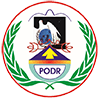“Knowledge is power. Information is liberating. Education is the premise of progress, in every society, in every family.” – Kofi Annan
The United Nations adopted a set of sustainable development goals for the year 2030 AD, addressing the fourth goal, which is education, with the stated goal of “ensuring inclusive and equitable quality education, and promoting lifelong learning opportunities for all. The World Education Forum was held in Incheon, Korea, to discuss the implementation of this goal, It adopted the Incheon Education 2030 Declaration, and it remains to be seen the impact of recent measures on the state of participation in education in African countries. With regard to issues of quality in education and equity, there are underlying reasons that prevent progress, such as high drop-out rates, grade repetition, low quality education, and lack of resources. Educational, lack of teachers, poor infrastructure and supplies, and difficulty in obtaining education in rural and remote areas, far from the main city centers, in addition to discrimination and depriving women of equal opportunities in education and rights, as a result of the low cultural level, and the prevalence of interest in material ideals to meet The needs of food and drink, and the neglect of moral ideals in education and urban advancement, so the most affected people, from their point of view, are given inspiration, so education is neglected. Although we do not deny the interest of the new, emerging generations in learning as a basic value in life, after social media and modern means of communication have prevailed, after the technological revolution of knowledge in the current era, and our role in our institution is to help establish schools in remote areas, and to provide existing schools with modern educational means It helps to develop the educational process.
